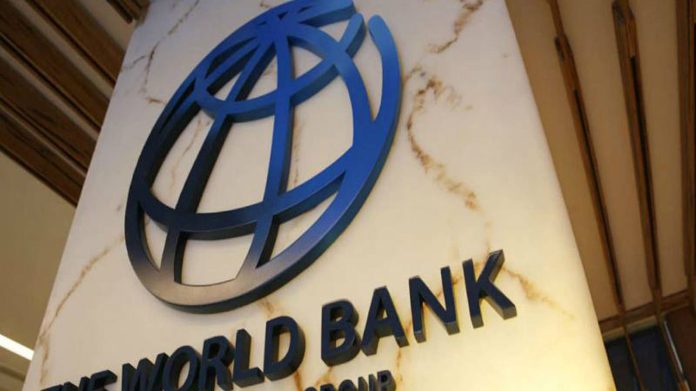The World Bank has diverged from the earlier position of its sister institution, the International Monetary Fund (IMF), on Nigeria’s economy, marking up its growth prospect by 10 basis points (bps) compared to its January belt.
Growth of the domestic economy, according to the World Bank’s latest Global Economic Prospect, could outpace last year’s 3.4 per cent performance by 0.2 per cent. It is expected to grow from 3.6 per cent this year to 3.7 per cent next year before heading to 3.8 per cent in 2027.
The bank’s belt is 0.6 percentage points above the IMF’s latest projection. The Fund, in its April forecast, cut the country’s gross domestic product (GDP) from 3.2 per cent to three per cent.
The IMF decision came in the face of heightened global trade tension and apprehension over the near-term prospect of crude, Nigeria’s export mainstay.
Driven by financial service and telecommunications, Nigeria closed last year at 3.4 per cent expansion, the sharpest growth in recent years. With a near one percentage point above the population growth rate, the growth suggested a significant improvement in general welfare except that the expansion was driven by non-inclusive sectors.
A 3.6 per cent growth would significantly outpace the average growth of the past 10 years. But the projection, even if achieved, would still put the economy behind the speed it requires to achieve a $1 trillion target set by the current administration.
The Guardian had reported that it would take the country over a decade at a constant rate of 17 per cent nominal growth it recorded last year to achieve the ambitious goal. A 3.6 per cent growth is a 0.1 percentage point behind the average growth projection of sub-Saharan Africa (SSA), in the estimation of the World Bank, but far ahead of the 2.3 per cent global average.
Still, on a regional pair, the World Bank was much more bullish on Nigeria’s economy than of South Africa, which it expected to grow by 0.7 per cent this year. Last year, Nigeria and Africa’s biggest economy diverged significantly with the latter picking a growth of 0.5 per cent. The prospect of the former apartheid country may be getting brighter, but it is still not expected to exceed an output growth of 1.3 per cent by 2027.
“Although inflation has cooled somewhat in recent months, it remains elevated relative to the central bank target and pre-pandemic trends. Nigeria’s fiscal position strengthened last year owing to a surge in revenues driven by the elimination of the implicit foreign exchange subsidy, ongoing improvements in revenue administration, increased revenues at the state level and higher remittances from government-owned enterprises,” a note on Nigeria said.
The bank noted an upside in large energy-exporting emerging markets, including Russia, Saudi Arabia and Nigeria, owing to other domestic factors beyond the energy sector.
On a global note, the World Bank said, heightened trade tensions and policy uncertainty could drive growth down this year to its slowest pace since 2008 outside of outright global recessions.
The turmoil has resulted in growth forecasts being cut in nearly 70 per cent of all economies across regions and income levels. A global recession is not expected. Nevertheless, if forecasts for the next two years materialise, the report said. But it noted that average global growth in the first seven years of the 2020s would be the slowest of any decade since the 1960s. Growth is expected to slow in nearly 60 per cent of all developing economies this year, averaging 3.8 per cent in 2025 before edging up to an average of 3.9 per cent over 2026 and 2027.
The guardian


